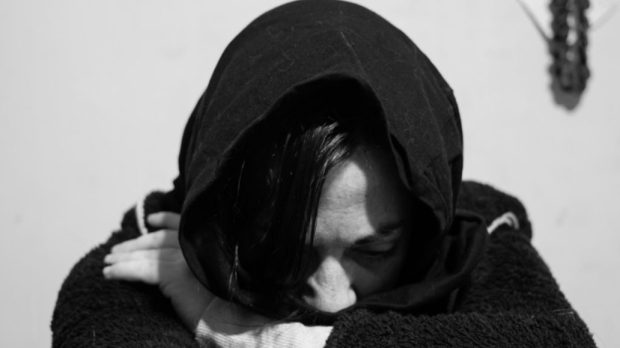Recent tensions between Iran and the United States have drawn the attention of Catholic leaders, who hope the two nations will avoid an escalation. The Islamic Republic of Iran is a theocratic republic. The majority of its population is Shiite Muslim, but religious minorities, such as Christians, are tolerated. Less than 1% of Iran’s population is Christian.
According to the United States Commission on International Religious Freedom, Iran has nearly 300,000 Christians, including adherents of apostolic Churches—Latin Catholic, Armenian and Assyrian/Chaldean—and newer Protestant and evangelical churches. The Catholic hierarchy consists of one Latin archdiocese—Ispahan—which has been vacant since the 2015 retirement of Archbishop Ignazio Bedini. There are also several Eastern Church eparchies: four Chaldean and one Armenian.
Five of the parliament’s 290 seats are reserved for Christians and other minorities: two for Armenian Christians and one each for Assyrian/Chaldean Christians, Jews, and Zoroastrians.
USCIRF said that the Iranian government monitors members of the historical Churches and imposes legal restrictions on constructing and renovating houses of worship.
“Christians have been sentenced to prison terms for holding private Christmas gatherings, organizing and conducting house churches, and traveling abroad to attend Christian seminars,” USCIRF said in its 2019 annual report. “Evangelical Christian communities face repression because many conduct services in Persian and proselytize to those outside their community. Pastors of house churches are often charged with national security-related crimes and apostasy.”
Converts to Christianity also face persecution, USCIRF said. “Pastor Youcef Nadarkhani, a prisoner for whom USCIRF advocates as part of its Religious Prisoners of Conscience Project, is a convert from Islam to Christianity who leads the Evangelical Church of Iran and has been arrested several times. In 2017, Judge [Mashallah] Ahmadzadeh sentenced Nadarkhani to 10 years in prison and two years in internal exile for ‘promoting Zionist Christianity.’ After several failed appeals, he was rearrested in July 2018 by plainclothes agents, beaten, and taken to a quarantine ward in Evin Prison.”
The commission reported that in 2018, Iran “drastically” escalated its arrests of Christians. Whereas 16 Christians were arrested in Iran in 2017, at least 171 were arrested in 2018. “Christians arrested in Iran are often treated and charged as enemies of the state, and lawyers who take on their cases face the threat of detention. In September 2018, for example, Iran revolutionary court judges [Mashallah] Ahmadzadeh and Ahmad Zargar affirmed sentences leveled in 2017 against Saheb Fadaie and Fatemeh Bakhteri on the charge of ‘spreading propaganda against the regime.'”
Iran has specifically targeted the family of Assyrian Christian pastor Victor Bet-Tamraz on spurious charges of acting against national security, USCIRF said. In 2017, Bet-Tamraz was sentenced to 10 years in prison and continues to appeal the sentence. In January 2018, Judge Mashallah Ahmadzadeh of Branch 26 of the Tehran Revolutionary Court sentenced Bet-Tamraz’s wife, Shamiram Isavi, to five years in prison on national security charges. In July 2018, the judge sentenced their son, Ramil, to four months in prison, also for ‘acting against national security.”
Last year, USCIRF recommended to the U.S. State Department that it designate Iran a “country of particular concern,” or CPC, under the International Religious Freedom Act. USCIRF noted that since President Donald J. Trump took office, the U.S. government has “significantly shifted its approach to relations with Iran, adopting a ‘maximum pressure’ campaign that emphasizes accountability for Iran’s nuclear activity and destabilizing activities in the region in addition to its egregious violations of human rights and religious freedom.”
In May 2018, the Trump Administration announced a re-imposition of sanctions waived or lifted under the Joint Comprehensive Plan of Action (JCPOA, the so-called Iran nuclear deal) to occur over a 180-day wind-down period. The first of these re-impositions occurred on August 7, 2018, and the second occurred on November 5. By the end of the reporting period, the United States had fully re-imposed the sanctions on Iran that had been lifted or waived under the JCPOA.
At the July 2018 Ministerial to Advance Religious Freedom held in Washington, DC, participating delegations from around the world issued a Statement on Iran concerning its mistreatment of religious minorities. Vice President Michael R. Pence also spoke about Iran’s restriction on religious freedom and urged Iranians to “press on with courage in the cause of freedom.” In August 2018, the Iran Action Group at the State Department issued a report in which it detailed Iran’s targeting of religious minorities, noting “Baha’is, Christians, Jews, Zoroastrians, and Sunni and Sufi Muslims face widespread persecution, discrimination, and unjust imprisonment.”

